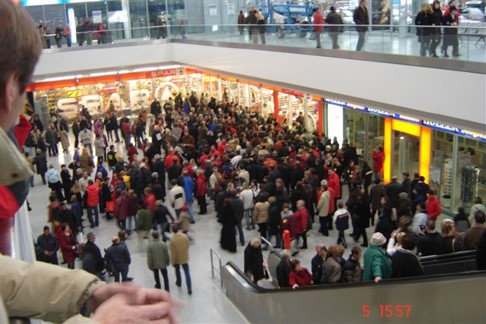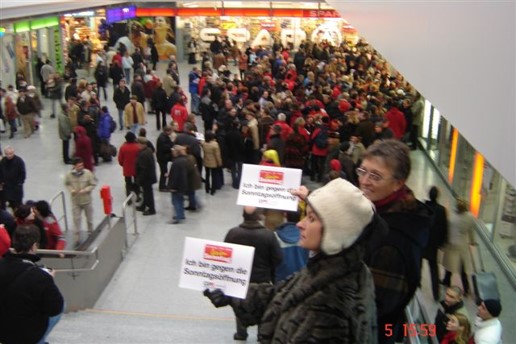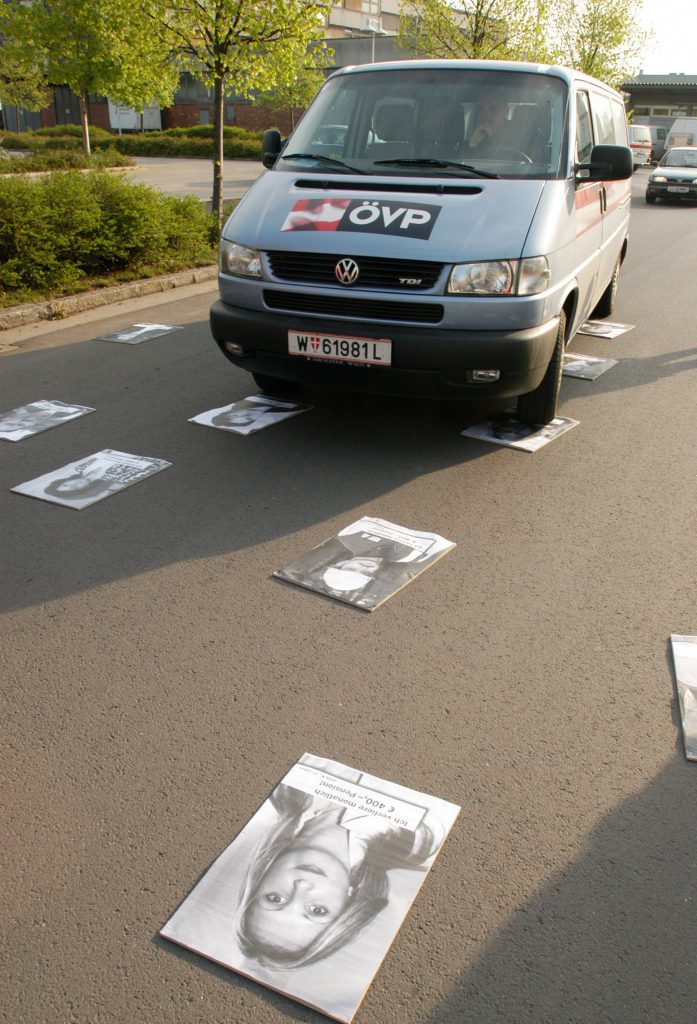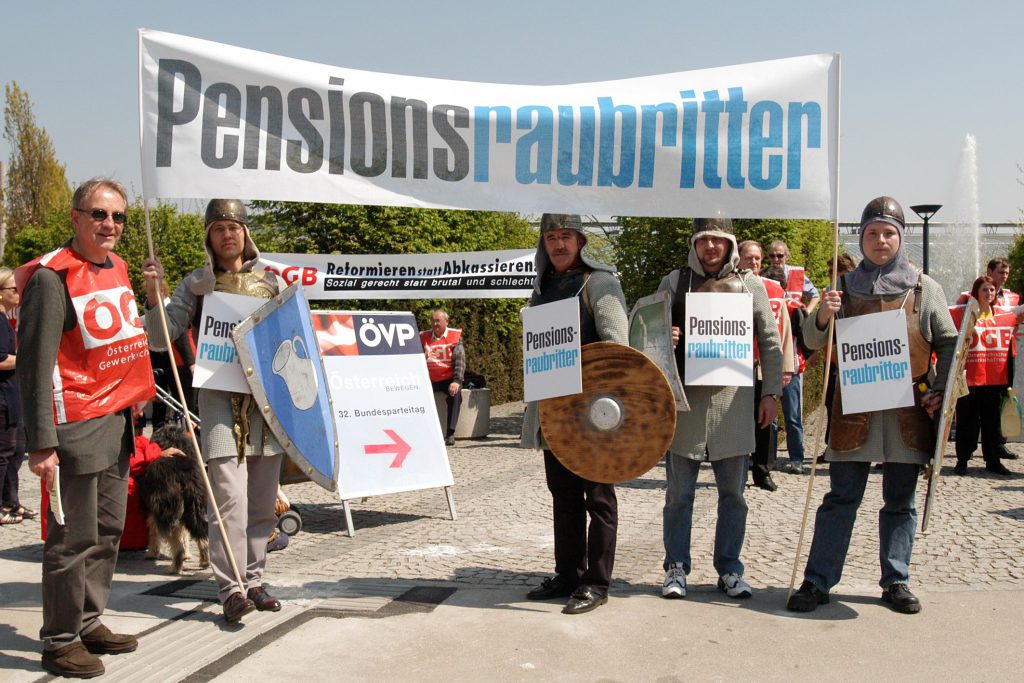Saul Alinsky – Tactics for being powerful
„We will either find a way or build one.“
„Tactics means doing what you can with what you have. (…) In the world of give and take, tactics is the art of giving and taking properly. We want to deal here with the tactics of taking, namely how the have-nots take power from the haves.“
(Both quotes Saul Alinsky, Guide to Being Powerful)
„Yes we can“ Organising counter power.
A brilliant mind in „counter power“ organising was the American Saul Alinsky (1909 to 1972). He is the forefather of community organising and was also active as a trade union organiser with the C.I.O. (Congress of Industrial Organisations).
The nucleus of his work: the old Chicago slaughterhouse district „Back to the Yards“, which is sadly famous in social terms. In this slum, he succeeded in the 1940s in building up a powerful citizens‘ organisation from previously hostile ethnic groups, in which they organised themselves on the basis of their common existential interests. It is fascinating that many of Barack Obama’s successful campaign strategies are based on Saul Alinsky’s ideas.
Saul Alinsky and the neighbourhood organisations he supported were able to build counter power where there was no institutionally organised balance of interests. So it is worth looking at his experiences when we look at how interests can be asserted when institutional channels are increasingly silted up and thus need to build on the formation of counter power. This is explored in more detail in this #thedi.
Tactics highlights from Alinsky’s toolbox
Alinsky has also left us a veritable rulebook of power tactics in his writings. Some of these can inspire our planning and design for workshops and retreats where counter power building is at stake:
- Power is not just what you have, but what the opponent thinks you have.
In educational work, we can use this tactic, for example, to guide analyses of actual states on the basis of specific cases from practice:
- What does our conflict partner think are our real power resources? How can we bring out precisely these strengths in the conflict?
- What real sources of power does our opponent really have? If we want to build up counter power, we have to look closely and many an „illusory“ power of the opponent will be disenchanted. Because „the power of the establishment is not in itself, but in your perception of its power“, says Alinsky.
In order to make connections visible in educational settings, the following form of collegial counselling, for example, is a good idea.
- The threat usually has more deterrent effect than the thing itself.
This is illustrated by an action idea that Alinsky describes in the Playboy interview (1972) and which confirmed this rule: A department store discriminatorily did not hire „coloured people“. Alinsky planned countermeasures with a citizens‘ platform. It was leaked that masses of „coloureds“ dressed in their Sunday best would be bussed to this huge department store to shop. According to plan, they would not buy anything, but they would cause congestion in the departments, confusion and completely disturb „white“ customers. After the deposit for the buses was paid, the management of the department store gave in to all demands.
Incidentally, there was a similar action by the „Alliance for the Free Sunday“ at the Spar supermarket at Linz railway station, after it also opened on Sundays in the new station building. Hundreds of trade unionists crowded between the shelves without buying anything. All the shopping trolleys were occupied. Spar finally caved in. The gloating and the „fun“ of the participants is the inspiration for both actions.
Impressions of the action against Sunday opening at the Linz train station
An action selection criterion for the actors must always be: „I feel like it!“ Another of Alinsky’s tactics rules fits in with this:
- Mockery is sometimes a strong weapon & good tactics make your people enjoy themselves.
Campaigns should also be guided by four principles, according to Alinsky: Ingenuity, Legality, Sensation and Effectiveness.
- Never leave the field of experience of your own people.
For Alinsky, the focus of action was always the very real people with their problems, their world of experience, their dignity as individuals, which deserves unconditional respect. „No matter how imaginative your tactics, how sophisticated your strategy, you are doomed before you even start if you don’t win people’s trust and respect; and that only happens if you trust and respect them.“
In participation-based tactics, we need to take people seriously as experts on their problem worlds and the solutions and methods that lie dormant within them. Wherever this participation succeeds, the colleagues support campaigns in industrial disputes with heart and creativity, as examples from the social and nursing professions show. Conversely, Alinsky advises:
- Wherever possible, leave the opponent’s sphere of experience.
In power struggles, our actions must surprise, create situations that are not expected and that take the opponent out of his routine. There is a lot of room for creativity in this tactic. Education can open up spaces that make this creativity possible. What we can rely on in educational work is the realisation that our participants usually know their opponents much better than they think. So why not use a role play to make this knowledge visible? How this can be done is explained in more detail here.
And „just to think“, here are a few more tactics according to Saul Alinsky.
- Force the opponent to live by his own laws.
Find his „mission statement“ and what is most valuable to him in terms of „image“. Where are the contradictions? And when the going gets tough, Alinsky says: „Personalise the opponent“. There should be no doubt about who is responsible for the state of affairs and for the fact that nothing will change in the interests of those affected.
- Pressure must never let up until concessions have actually been translated into reality.
When something is at stake, we need a well thought out and realistic escalation plan and it must be a credible „plan to win“ that still has reserves to increase the pressure further.
- Choose a „target“ – personalise the injustice.
As Bert Brecht is also supposed to have said, „Injustice has a name and an address.“ The question is always who brings about and maintains unjust conditions. So we should also work on actual analyses in conflict situations to find out which organisations or specific persons bear particular responsibility here and how we can address them accordingly.
- The price of a successful attack must be a constructive alternative.
A worthwhile goal is not primarily to prevent something, but to draw very specific, realistic perspectives on how the living situation of those affected will be better in the end (resistance needs hope for change, as described here).
10th, 11th, 12th … read up on Alinsky. Have fun!
For watching
- GPA Aktion zur Sonntagöffnung im Supermarkt
- ver.di Schlecker Kampagne
- WE WANT SEX
- Das ganze Leben liegt vor dir
For further reading
- Saul D. Alinsky, Anleitung zum Mächtigsein. Ausgewählte Schriften, Göttingen 21999 (alle Zitate in diesem Beitrag sind diesem Buch entnommen).
- Saul Alinsky und die Industrial Areas Foundation, Vollständige deutsche Übersetzung eines Interviews mit der Zeitschrift Playboy, ab 3/1972, wiederveröffentlicht in der Internetzeitschrift „The Progress Report“ ab 5/2002; übersetzt ins Deutsche Frank Theves, 7/2010
Author: Gerhard Gstöttner-Hofer
Lust auf mehr Theorie? Zu allen Beiträgen der Serie kommst du HIER!

Dieses Werk ist lizenziert unter einer Creative Commons Namensnennung-NichtKommerziell-Weitergabe unter gleichen Bedingungen unter gleichen Bedingungen 3.0 Österreich Lizenz.
Volltext der Lizenz

Dieses Werk ist lizenziert unter einer Creative Commons Namensnennung-NichtKommerziell-Weitergabe unter gleichen Bedingungen unter gleichen Bedingungen 3.0 Österreich Lizenz.
Volltext der Lizenz







